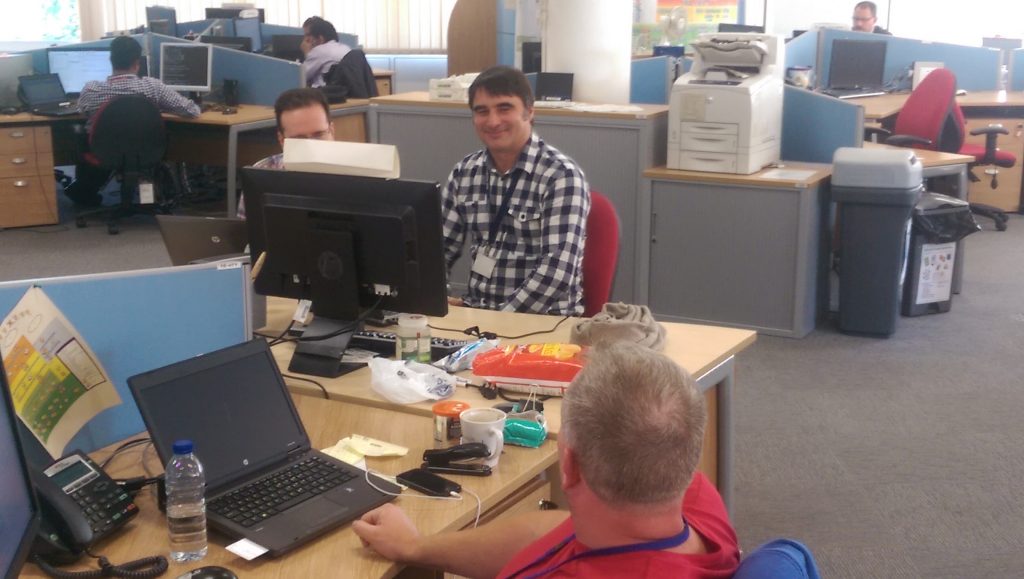Blog number three from the Junior WebOps training program. Adrian’s blog back in July took us through the second block of the training so I’ll finish off with the final third.
Week 10 – Skyscape and shadowing
During Week 10 of the course we were back in DWP’s Leeds One office to shadow the existing WebOps team and improve our skills and knowledge on the Skyscape platform.
These weeks were very useful in cementing the information we’d been taught to date, and building our confidence by working alongside more experienced colleagues – it was good to have a bit of a break from the classroom environment!
Week 11 – AWS and Puppet
Week 11 saw us return to the office of QA (the training provider), to focus on Amazon Web Services (AWS) and orchestration.
AWS is a virtualization application used by the likes of BBC iPlayer, Netflix and the US Government. It is sometimes referred to as the “Amazon Cloud”.
The big selling point of AWS is the ease of scaling applications; this means that during peak performance times additional servers can be brought online quickly and without interruption to the service, and then be removed again at quieter times.
Although DWP isn’t currently using AWS in any live services, we are moving more services into the cloud using a similar scalable approach so it was useful to get an understanding of this approach to cloud automation using an established model like AWS.
The last few days of Week 11 were spent on Puppet. Puppet is a declarative, model-based, automated management solution. It allows you to define the state of your IT infrastructure and will then automatically enforce the correct configuration to ensure the right services are up and running, on the right platforms.
Software like this is required in order to manage large IT estates efficiently and cost effectively. To check and manage that sort of work manually would take huge numbers of staff and lots of time so mastering tools like Puppet is essential for those of us in the WebOps space.
Week 12 – WebOps Tooling
The final week was all about getting to grips with WebOps tooling. We covered a number of tools that are widely used in the Department:
- Maven (build automation software)
- Jenkins (continuous integration tool)
- Docker (automates the deployment of applications inside software containers)
- A bit more on Puppet (configuration management utility)
We also had to research a product currently in use in DWP and give a presentation on it at the end of the week. This gave us an insight into how to effectively investigate new technology and then show its positives and negatives to others.
Next steps
When the final presentations had been completed we had the usual retrospective for the week, plus a retrospective for the whole 12 week course. Feedback from that will be used to aid future iterations of the course.
One of the recommendations was that days should be set aside at the end of each section for in-class projects and getting to use the software / skills that we have learnt. Hopefully this will be taken forward in order to aid the next generation of WebOps people.
As a whole the course was excellent, extremely well run and well put together - a big thank you is needed to the QA training team who understood what we were undertaking and helped us through the difficult times.
Everyone definitely enjoyed the course. Each of us had found different bits more challenging than others, but as a team we had worked together to get a good understanding of what the world of digital WebOps is all about.
And that was it, 12 weeks of learning completed. There were highs (free chocolate and coffee!) and lows (very early mornings!) but it does seem to have flown by. This may be the end of course but it is not the end of the team, we are now off to join the WebOps team proper and embark on new projects. Although the training course has finished we all realise that our learning has only just begun!


Recent Comments